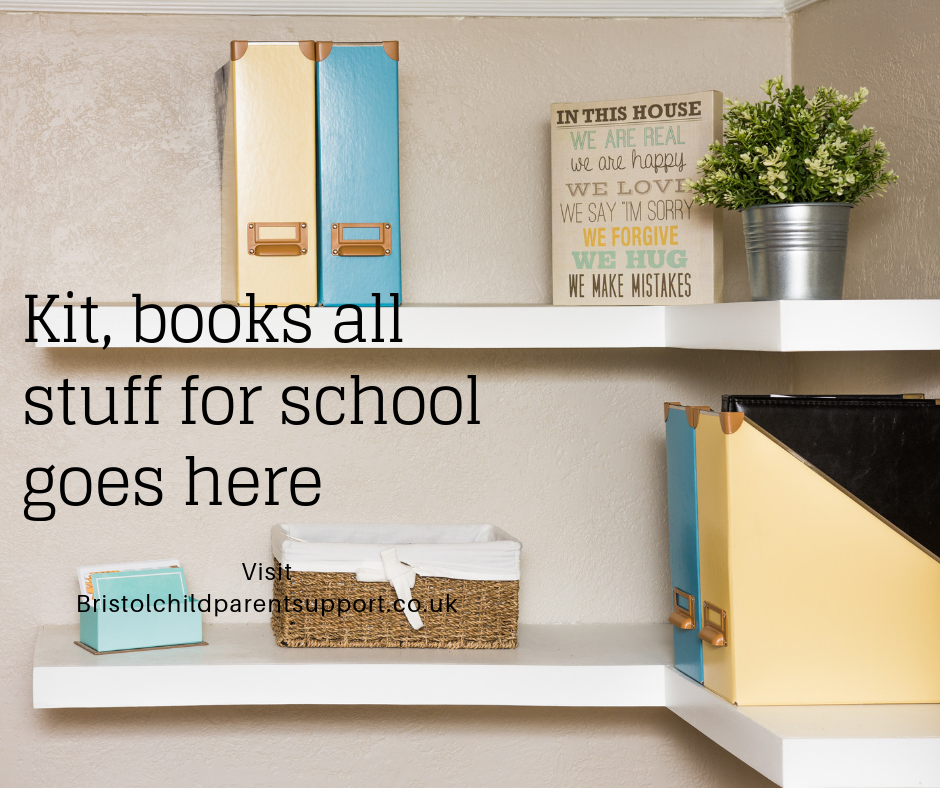The new term has finally arrived. It must be a relief, a joy, and maybe evoke some worries. How is your morning routine shaping? As parents, we often forget that the patterns we establish are the foundation for our children’s ability to adapt. That’s why our routines are so important. And, no matter how much our homes are “child-centred,” we, the parents, set the tone. Your “tone” may have been changed during the lockdown. Many external structures, such as schools, swiftly went.
What is your Relationship with Routine and Structure?
How does it feel when you reflect on a routine or structure within your home? Does it feel stiff and rigid like a stone? Does this lead to a reluctance to implement them, for instance? Growing up, you may have experienced an Authoritarian Parenting Style. In contrast, routines feel flexible and flow like water. Intuitively you know when something may need to change, and you adapt swiftly. It would then suggest an Authoritative Parenting Style, which is the most effective incidentally. Regardless of your style, children benefit from routines; it makes them feel safe and helps them handle the unexpected. They are just like us and don’t like it if something unpredictable occurs. Routines help children cooperate, especially if they are included or offered choices; this prevents power battles.
Where is the Stress Point in Your Family?
Do your children stall before leaving for school? Therefore, they could be anxious. Do you feel you must constantly nag your children to get up or remember their kit? Here are some simple ideas to transform your mornings and bring positivity.
Reflect and Review, what do you want to achieve?
It would be straightforward for me to tell you what you should do with your routine, but what do you want to change? An intense routine is a routine that works for you — it sets your day for you and the whole family to feel motivated for the rest of the day. Write down what’s problem could it be?:

- Waking up
- Breakfast
- Getting dressed
- Finding a school kit, shoes, bags, and homework
- Getting out the door on time
- Separation anxiety and struggling with transitions
Pick one and have a family meeting to discuss it first. You can click on the video below for some ideas on how to implement one:
Let’s take each difficulty in order.
1. Struggling with waking up, have an alarm clock, and ensure your children sleep well!
If your child is not getting enough sleep, mornings will be difficult. Having a good night’s sleep is just as important as a healthy diet and exercise. I am offering two online sleep workshops; click on here, ****Parent Workshops**** or follow a simple routine of not more than 40 minutes in combination with:
- Keeping activities quiet for at least 1-2 hours before bedtime.
- Trying to keep schoolwork out of the bedroom. Ideally, use bedrooms just for sleeping or clearly distinguish between daytime and nighttime bed use (e.g., changing a cover, sleep pillows versus wake pillows).
- Ensuring filters on phones, tablets, and computers
- Changing light bulbs. Most night lights emit blue light; change to lights on the red Spectrum.
Alternatively, a simple solution may be an alarm clock. An alarm clock is a pretty grown-up thing. In my experience, children covet them. You could allow them to choose one, but on one condition:
If you do not use it, they may have to lose it.
2. Breakfast Times.
Some children do not eat much at breakfast, or they eat slowly. This could highlight their anxiety about separating; I will address that later. Why don’t you let them choose a healthy breakfast once a week or implement a reward chart? Could your children take turns being a breakfast monitor and setting the breakfast? Children are more likely to cooperate if they feel included in decision-making.

3. Getting dressed.
It is all too easy to do everything for your child if you are in a rush. As part of your bedtime routine, let them choose and put out the clothes for the morning. For younger children, sometimes it’s easier to have two choices rather than many.
4. Kit woes.
How much time do you spend looking for a kit, homework, shoes, or bags? Stop the chaos; create a bench or place in the house where all essentials are kept. Keep it there at all times. In addition, make a tick list to put just before the door. Instead of nagging, you can point to the list.

5. Ideas to help leave on time.
- Skip the screen time. You’re trying to get your children to move faster. Please don’t give them a reason to zone out over their cereal. Keep the TV and tablets off until everyone is completely ready to go.
- Instead of screens, how about putting on music with a happy beat?
- You could even ask one of the children to be responsible for helping everyone else get ready ( of course, this depends on their age and developmental stage). You want at least one child on your side.
- Ensure hugs before you go. This will help the transition if your child is anxious or worried. I see many children and parents who struggle to separate. This may need to be tenderly addressed, and you might say some words such as:
I wonder if, or maybe you might be worried about starting school
How can I help you, would it help to…….”“I can understand you might be feeling…..and you have to go to school, you are going to be really well looked after by….”
“I know when you get into the class, you will be okay, safe, do let your teacher know if you are feeling the ” worry wobbler” ”
“It’s hard leaving mummy, mummy is okay and I know school safe place for you. Your teacher is going to meet us at the playground and take you in”.
“Maybe you are worried about mummy, mummy has lots to do at home”
6. Let them be late.
Always allow your children to change, especially given the special circumstances. Always talk it through with them, especially if they are anxious. Sometimes we have to allow children to take responsibility for their actions. If it is problematic and not anxiety, arrange with the teacher that they might be late. Arranging a home and school reward for being on time may be even better.
7. Use Visual Cues to describe what you want children to do.
When we are in a rush, it is so easy to give multiple commands. Children often find processing difficult, and a visual chart can help. Draw what you want to see, and then you can point and show it to your children.
There is a free Download here:
******Morning-Routine.********
8. Make weekends memorable, stay connected.
It’s a good idea not to stray too much from the routine but be flexible on the weekends. Please still make sure that your children are getting enough sleep, but you can enjoy the more relaxed pace by making a special breakfast or having storytime before doing the usual routine like brushing your teeth and brushing your hair. You can even start a weekend tradition like cooking breakfast together. Don’t forget to give your children special time at the weekends too.
NB. Remember and keep changes small and achievable. Always take time to reconnect following the last six months. Be on your side, or no one else will be!
I hope this helps you all during the new school term. If you are a parent needing further support, then do contact me for a consultation or meet me at the workshops below. Stay safe and well; with love and gratitude, Catherine.
Upcoming Events
- Gentle Sleep Workshop for Parents with Toddlers ( 1-Preschool)Oct 3 @ 9:45 am – 12:00 pm
- Gentle Sleep Workshop for Parents with Children (School Age -12)Nov 7 @ 9:45 am – 12:15 pm



